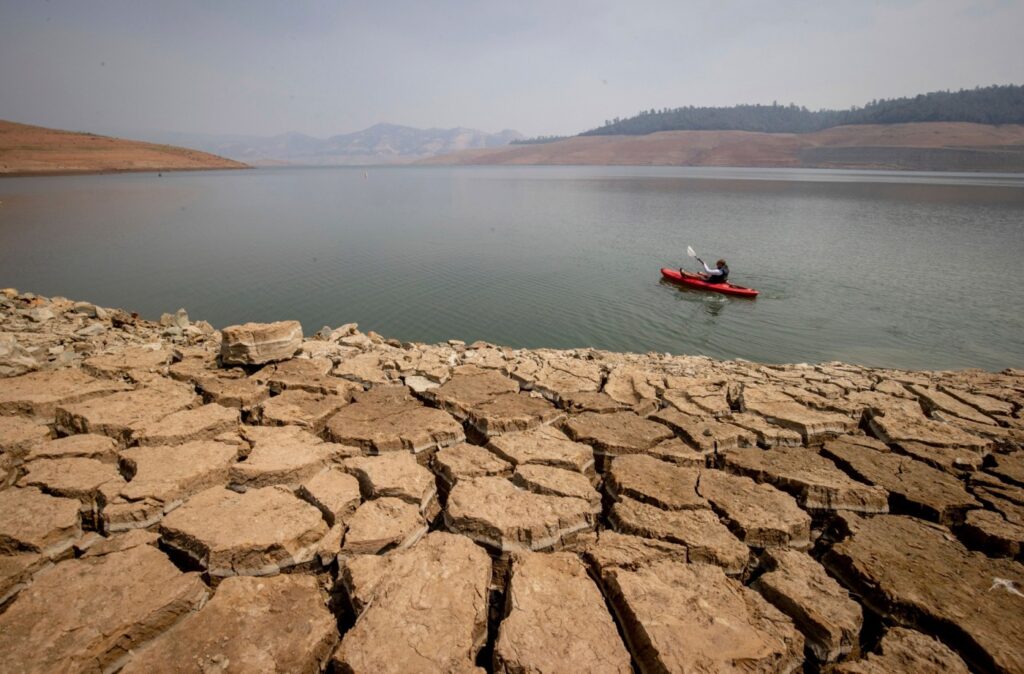
As severe recession wracked California 13 years ago, it revealed a serious flaw in the state government’s revenue system.
Over several decades, the state had become increasingly dependent on taxing a relative few affluent Californians whose taxable incomes, largely from investments, tended to have wide swings.
During prosperous periods, their incomes would increase sharply, generating billions of extra dollars for the state treasury but during economic downturns, incomes and taxes on them would plummet, leaving big holes in the state budget.
The syndrome was called “volatility” and then-Gov. Arnold Schwarzenegger and state legislators agreed that it needed a fix. But rather than act decisively, they did what politicians often do when faced with seemingly intractable issues — appoint a “blue ribbon commission” to come up with solutions.
The Commission on the 21st Century Economy, dubbed the Parsky Commission for its chairman, businessman Gerald Parsky, spent months hearing from experts, debating possible approaches to the problem and finally drafting a 425-page report that about half of its 14 members disdained and was quickly filed away and forgotten.
Subsequently, the state became even more dependent on taxing high-income Californians by raising their income tax rates. It’s why the state is now enjoying a bumper crop of revenues and why it would have a big problem should the economy tank.
The reserves that the state has been building as an alternative to overhauling the tax system, as the Parsky Commission report advocated, would cushion the impact of a precipitous revenue drop, but it would still hit education and other spending categories hard.
This bit of recent history is offered to place Senate Bill 1219 in context.
Introduced this month by Sen. Melissa Hurtado, a Sanger Democrat, it would create a blue ribbon commission, composed of bureaucrats and political appointees, to recommend ways to restructure the state’s agencies that purport to manage water and dissolve the state’s chief water agency, the Water Resources Control Board.
The legislation, Hurtado said, “works to create a sustainable water system prioritizing preservation and sustainability…”
No, it doesn’t.
Creating a blue ribbon commission, abolishing the state water board and shifting its duties to the Department of Water Resources might change the bureaucratic organization chart. But it does nothing to solve the yawning gap between water demand and water supply that developed during decades of political inaction and is worsening due to climate change.
If enacted — which is very unlikely — SB 1219 would simply postpone once again the hard policy decisions that the growing crisis requires, such increasing supply through desalination and wastewater reclamation, reallocating the existing supply among competing uses, and/or building more storage to capture winter rains as mountain snow packs shrink.
Related Articles
Even parents in liberal San Francisco have limits
Banning retail cannabis outlets fuels the illicit market
The United States should welcome, not deport, fleeing Venezuelans
Life after COVID just won’t be the same in California
Unintended consequences abound in California policy decisions
Each of those specific strategies carries the potential for bitter political infighting as the state’s many competing water interests seek to protect or even expand their claims on supply but postponing the day of reckoning just sharpens the inevitable clashes. We are already years overdue for acting on the water conundrum.
Rearranging the water bureaucracy, as Hurtado proposes, is probably needed, but unto itself would not address the overarching issue of supply and demand. It should be done to implement the needed policy decisions, if and when they occur, and doesn’t need a blue ribbon commission to accomplish.
Hurtado represents an agricultural San Joaquin Valley district that is keenly feeling the impact of drought, so it’s natural that she wants to do something, but SB 1219 is just feel-good fodder for a press release, not the concrete action that the situation demands.
CalMatters is a public interest journalism venture committed to explaining how California’s state Capitol works and why it matters. For more stories by Dan Walters, go to calmatters.org/commentary.
